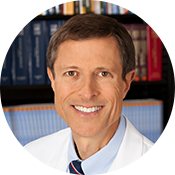One of the staunchest advocates today for a plant-based diet is Dr. Neal Barnard, who grew up in a cattle-ranching family but began to explore the health benefits of plant-based eating during his medical training. The founder of Physicians’ Committee for Responsible Medicine, he has made the case for a vegan diet for over three decades through 17 books, many of which have become bestsellers. We spoke with him about some of today’s pervasive nutrition myths.
Parvati Magazine: What is the Negative Calorie Effect?
Dr. Neal Barnard: It is not that certain foods do not have calories or fewer than zero calories, but the idea that certain foods, after you consume them, some of the calories are subtracted, so to speak. For example, if I eat butter, which is nearly 100% fat, this becomes easily stored as fat in the body. If I eat rice, the rice becomes digested into glucose, a necessary fuel for energy and a variety of functions in the body and ends up not being stored as fat. If I overeat rice, some of it is stored as glycogen in muscles and the liver. If I continue to overeat rice, some of it does become converted to fat, but this process ends up using one quarter or more of the calories for this conversion. Therefore, the concept of the Negative Calorie Effect is that certain foods do not go one hundred percent to body fat when you overeat them. When you choose these foods, it is easier to control your weight. Not all calories are created equal.
PMAG: Are all carbohydrates equal?
NB: Carbohydrates are a natural fuel for the human body – muscles, brain – carbohydrates are glucose, and come from vegetables, fruits, grains and legumes. Populations whose diets are heavily based on these foods are often the healthiest and live the longest. When their diets change and are replaced by fatty foods, they do worse – higher rates of cardiovascular disease, diabetes, and reduced lifespan. For example, we saw this with the traditional diets of the Japanese in the 1950s that was based on rice and noodles, and later changed when McDonald’s arrived in Japan. We are also seeing this in China. Vegetables, fruits, grains and legumes are the building blocks of a healthy diet, which have abundant carbohydrates in a healthy form as well as abundant protein.
When carbohydrates are processed, for example from brown rice to white rice, you are losing some of the nutrient advantage, but it can still be a healthy food. What really determines whether this becomes a healthy meal is what you add to it: if you top your spaghetti with meatballs and Alfredo sauce, this will significantly add to the salt, fat content and calories.
PMAG: Is fat the major concern with meat?
NB: When you are eating a meatball, you are consuming animal fat which will raise cholesterol. The meat itself contains carcinogens which increases your risk of colon cancer. The fat will also enter your liver and increase your risk of insulin resistance and diabetes. There is no fiber in meat and it is usually high in salt. So fat – this kind of fat – is only part of the problem.
PMAG: You also believe that cheese is an addictive food.
NB: The combination of its high fat and salt content as well as the opiates found in milk protein and concentrated in this product likely make this an addictive food. In addition, cows tend to be pregnant on dairy farms and pregnant animals make more estrogen, which is concentrated in the milk. Although the amounts are low, researchers have been looking at whether this may have an effect on human health. For example, women previously diagnosed with breast cancer, who consume a diet heavy in high-fat dairy products, have a 49% higher risk of dying of their cancer. There have been studies suggesting fertility in men is affected by cheese consumption. So, while the traces of female sex hormones in cheese and dairy products is quite small, it may be that this is more than enough to affect human biology.
PMAG: With so much information about nutrition, how do you boil it down to the essentials?
NB: This nutritional approach really emphasizes the healthiest foods: vegetables, fruits, whole grains and legumes to help promote weight loss, lower cholesterol, reduce cancer risk, improve digestion. It is also a new way of thinking about food as a powerful way to nourish our bodies.
Neal Barnard, M.D., F.A.C.C., is the president and founder of the non-profit Physicians Committee for Responsible Medicine and Barnard Medical Center. He is the author of 17 previous books, including New York Times best-sellers. He stars in four PBS specials about diet and health, is a fellow of the American College of Cardiology, and is an adjunct associate professor of medicine at the George Washington University School of Medicine and Health Sciences.












